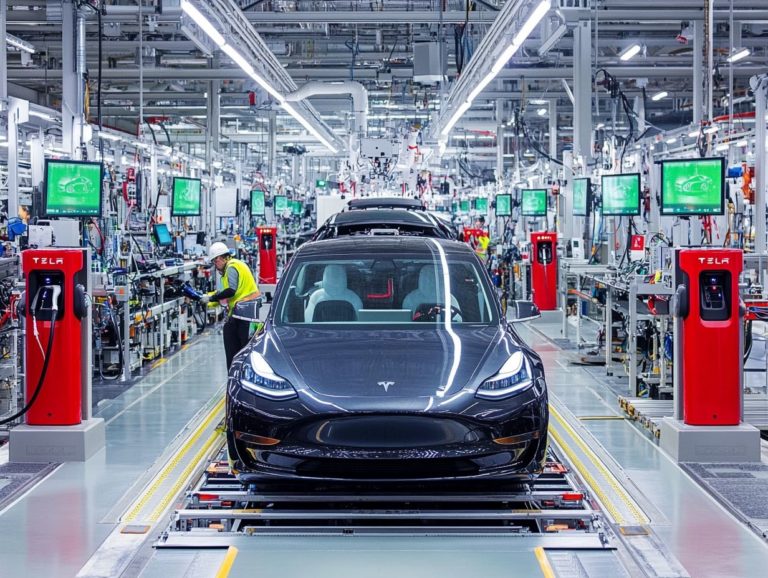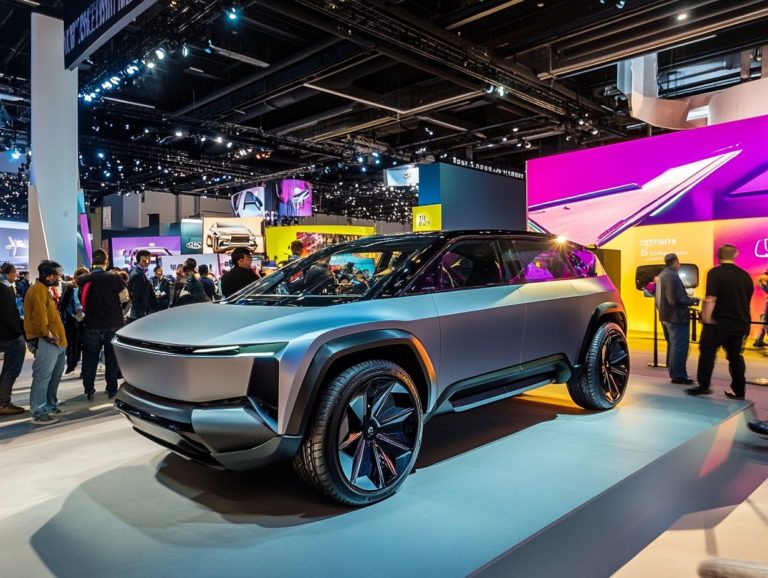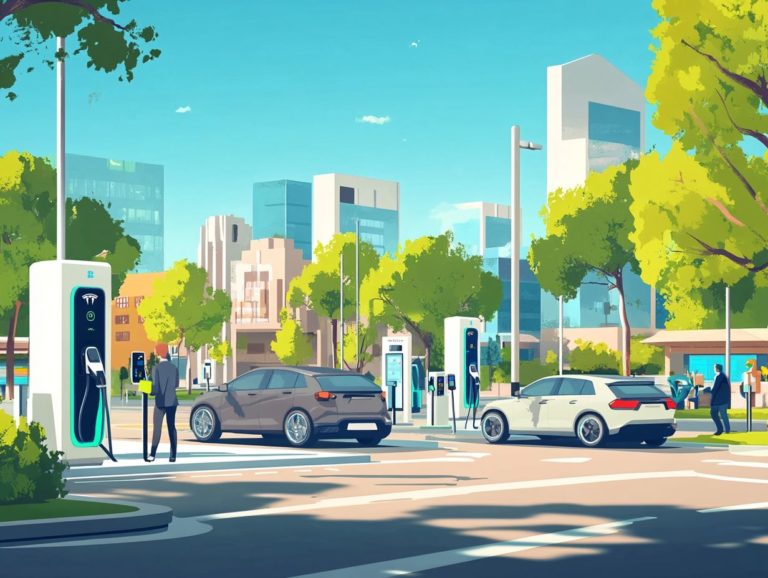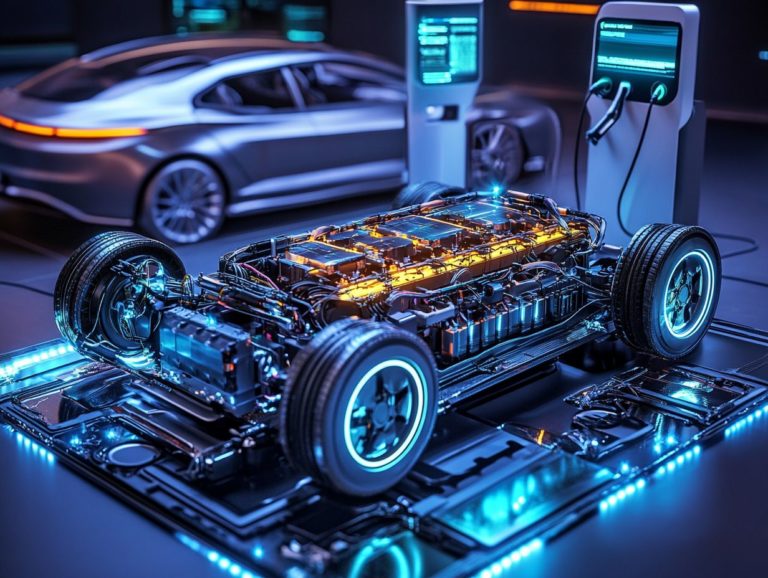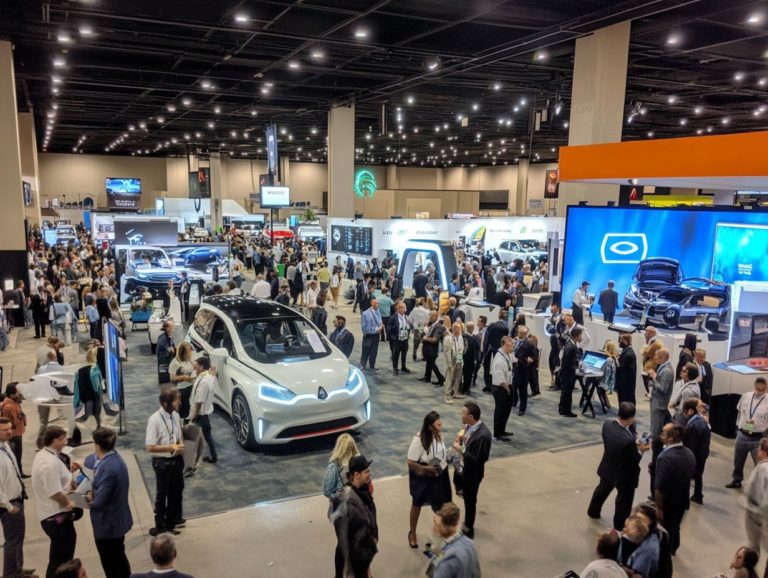how electric vehicles could save you money
Electric vehicles (EVs) transcend being merely a trendy alternative to traditional cars. They bring a host of financial and environmental advantages that can significantly enhance your driving experience.
By opting for an EV, you can enjoy considerable cost savings from lower fuel and maintenance expenses. You might also qualify for tax incentives, making your switch even more appealing.
Not only will you enjoy savings, but you ll also make a positive impact on the environment by reducing carbon emissions and improving air quality. Before making your purchase, it s essential to consider key factors.
You ll find practical tips here to maximize your savings through efficient driving techniques and optimal use of public charging stations.
Don t miss out! Transitioning to an electric vehicle can save you money and help the planet!
Contents
- Key Takeaways:
- Cost Savings with EVs
- Environmental Benefits of EVs
- Key Factors to Help You Choose the Right EV
- Tips for Maximizing Cost Savings with EVs
- Frequently Asked Questions
- How can electric vehicles save me money on fuel costs?
- Are there any tax incentives for purchasing an electric vehicle?
- How does owning an electric vehicle impact my maintenance costs?
- Can I save money on car insurance with an electric vehicle?
- What about the cost of electricity for charging an electric vehicle?
- Can Electric Vehicles Save Me Money on Taxes and Tolls?
Key Takeaways:
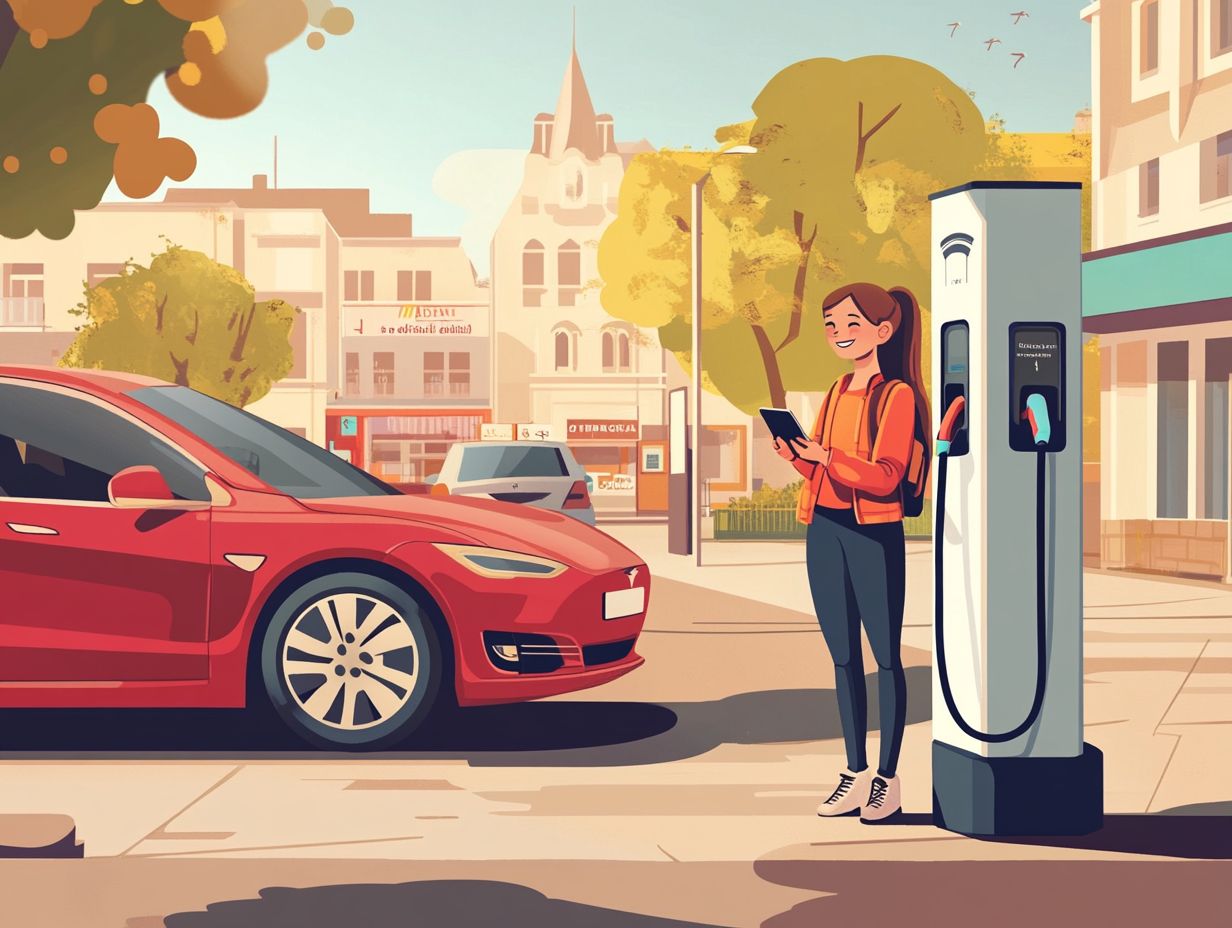
Electric vehicles offer cost savings through lower fuel and maintenance costs, as well as potential tax incentives and rebates. To maximize these benefits, it’s important to understand how to compare electric vehicle ownership costs. In addition to saving money, EVs also provide environmental benefits by reducing carbon emissions and improving air quality.
Consider upfront costs, charging infrastructure, and available models when deciding on purchasing an EV. Maximize savings by utilizing efficient driving techniques and public charging stations.
What are Electric Vehicles?
Electric vehicles (EVs) signal a remarkable transformation in the automotive world. They are powered by electricity rather than traditional gasoline engines.
Thanks to advancements in battery technology, EVs have significantly enhanced their range and efficiency. Models like the Hyundai Ioniq 6 and Chevrolet Bolt EUV are not just eco-friendly; they also help reduce carbon emissions, appealing to eco-conscious consumers.
As the average price of electric vehicles continues to shift, more potential buyers are weighing the total cost of ownership against gasoline vehicles. The primary difference lies in the way they are powered: EVs use electric motors that run on rechargeable batteries, while traditional cars rely on gasoline engines.
This distinction leads to considerably lower maintenance costs for electric vehicles, as they feature fewer moving parts and eliminate the need for oil changes. Research in the automotive field suggests that EVs often provide quicker acceleration and a quieter ride, enhancing your overall driving experience.
As you navigate your vehicle ownership journey, consider not just the purchase price but also the long-term savings on fuel and maintenance. This makes electric vehicles a compelling option in today s market.
Cost Savings with EVs
The cost savings linked to electric vehicles (EVs) are a major reason for their growing appeal among consumers. They present substantial financial advantages compared to traditional gasoline vehicles.
By opting for an EV, you can enjoy lower fuel costs, leading to a more economical driving experience. Reduced maintenance expenses also help you save money.
As the average ownership cost of electric vehicles becomes increasingly attractive, many buyers recognize the long-term financial benefits of energy efficiency and lower operational costs. This makes the decision to purchase an EV a wise investment.
Lower Fuel and Maintenance Costs
One of the most compelling advantages of electric vehicles (EVs) is their significantly lower fuel and maintenance costs compared to traditional gasoline vehicles. As an EV owner, you’ll likely enjoy considerable savings on fuel due to the more affordable price of electricity and varying charging costs that often work in your favor.
Maintenance savings come from fewer moving parts and reduced wear and tear. This enhances the overall cost-effectiveness of EVs, making them a smart choice for budget-conscious consumers.
Beyond these financial benefits, the driving efficiency of electric motors means you convert a greater percentage of energy into movement. This efficiency allows you to travel longer distances at lower operational costs, contributing to a decrease in your overall transportation expenses. This boosts the appeal of owning an EV.
By taking advantage of various incentives available in many regions like reduced tolls and tax credits the decision to switch to an electric vehicle becomes even more sensible.
Ultimately, it s exciting how these vehicles can foster a more sustainable and economically viable mode of transportation for you in the long run.
Possible Tax Incentives and Rebates
As a potential buyer of an electric vehicle (EV), you stand to gain significantly from the many tax incentives and rebates available at both the federal and state levels. This makes your transition to electric driving more enticing than ever.
You could take advantage of generous federal tax credits, which may offer you up to $7,500 off the purchase price, depending on the specific EV models and their battery capacities. Additionally, state governments often provide rebates that can vary widely, sometimes reaching as high as $5,000 or more, effectively lightening the financial load of making the switch to an EV.
In certain regions, you might also find incentives like reduced registration fees or even privileged access to carpool lanes, enhancing the benefits of EV ownership.
As awareness of these potential savings continues to grow, many buyers like you are beginning to appreciate the long-term advantages of embracing electric vehicle technology. Join the movement towards cleaner driving today!
Environmental Benefits of EVs

Electric vehicles (EVs) present a wealth of environmental advantages, chiefly through their capacity to significantly reduce carbon emissions and address the pressing issue of climate change.
By lessening dependence on gasoline-powered vehicles, EVs play a pivotal role in curbing carbon pollution. These gases trap heat in the atmosphere, contributing to climate change, which is essential for enhancing public health and safeguarding the environment.
The U.S. Environmental Protection Agency is well aware of these benefits and actively promotes the transition to cleaner transportation alternatives. As electric utilities channel investments into renewable energy sources, the overall environmental impact of EVs is poised to improve even further, reinforcing the case for sustainable transportation solutions.
Reduced Carbon Emissions
The adoption of electric vehicles (EVs) is crucial for reducing carbon emissions, a vital step in tackling climate change.
When you make the switch from gasoline vehicles to EVs, you actively contribute to lower greenhouse gas emissions a fact supported by research from reputable organizations like the U.S. Department of Energy (DOE). This shift in your transportation choices not only aids in the fight against climate change but also paves the way for a cleaner, more sustainable future for generations to come.
A study by the Union of Concerned Scientists reveals that an EV can produce emissions that are up to 60% lower than those of conventional cars over their entire lifetime, even when factoring in the energy used during manufacturing.
As the electricity grid becomes greener with the growing reliance on renewable energy sources, the carbon footprint associated with driving EVs continues to shrink. Data shows that every mile you drive in an electric vehicle could save you upwards of 4.6 metric tons of CO2 per year. This highlights the significant impact of this transportation evolution on the climate crisis.
Improving Air Quality
Electric vehicles (EVs) play an important role in enhancing air quality, a crucial part of public health and overall well-being. With zero tailpipe emissions, EVs effectively reduce harmful carbon outputs that contribute to air pollution and respiratory issues. This fosters healthier communities.
This improvement in air quality is particularly vital in urban settings, where vehicle emissions are prevalent. By switching to electric vehicles now, you contribute to cleaner air and a healthier, more vibrant community!
Widespread adoption of EVs creates a positive impact, elevating the health of those living in densely populated areas. With fewer emissions, you ll witness a substantial reduction in smog and particulate matter, both linked to serious health concerns like asthma and cardiovascular diseases.
By embracing electric vehicles, you re not just contributing to cleaner air; you re also cultivating a sense of safety and well-being among residents. Transitioning to an electric-based transportation system offers a remarkable opportunity to foster vibrant, healthier environments and pave the way for a sustainable future for generations to come.
Key Factors to Help You Choose the Right EV
Before you purchase an electric vehicle (EV), it s essential to evaluate several key factors to ensure you make a well-informed decision.
- Consider the upfront costs.
- The range of available electric vehicle models.
- The availability of charging stations in your area.
Understanding the average price of an EV and comparing it to traditional gasoline vehicles can give you valuable insight into the financial commitment involved. Moreover, assessing the range of various electric models and the availability of used EVs will help you pinpoint the best option to match your lifestyle and driving needs.
Upfront Costs and Available Models
When you delve into the world of electric vehicles (EVs), it’s essential to weigh the upfront costs tied to various models alongside the average market price for EVs. With a plethora of options available from used gems to shiny new models like the Hyundai Ioniq 6 and Chevrolet Bolt EUV it s crucial to embark on a meticulous cost comparison to find the best fit for your budget.
This process goes beyond simply looking at the sticker price; you ll want to factor in available federal and state tax incentives, maintenance costs, and resale value. For example, some models might seem pricier at first, but their long-term savings could make them the more appealing choice.
Consider the availability of charging stations in your area, as this can significantly affect your overall expenses related to EV ownership.
By carefully weighing these factors, you can make informed decisions that harmonize your financial goals with your eco-friendly aspirations.
Charging Infrastructure and Range
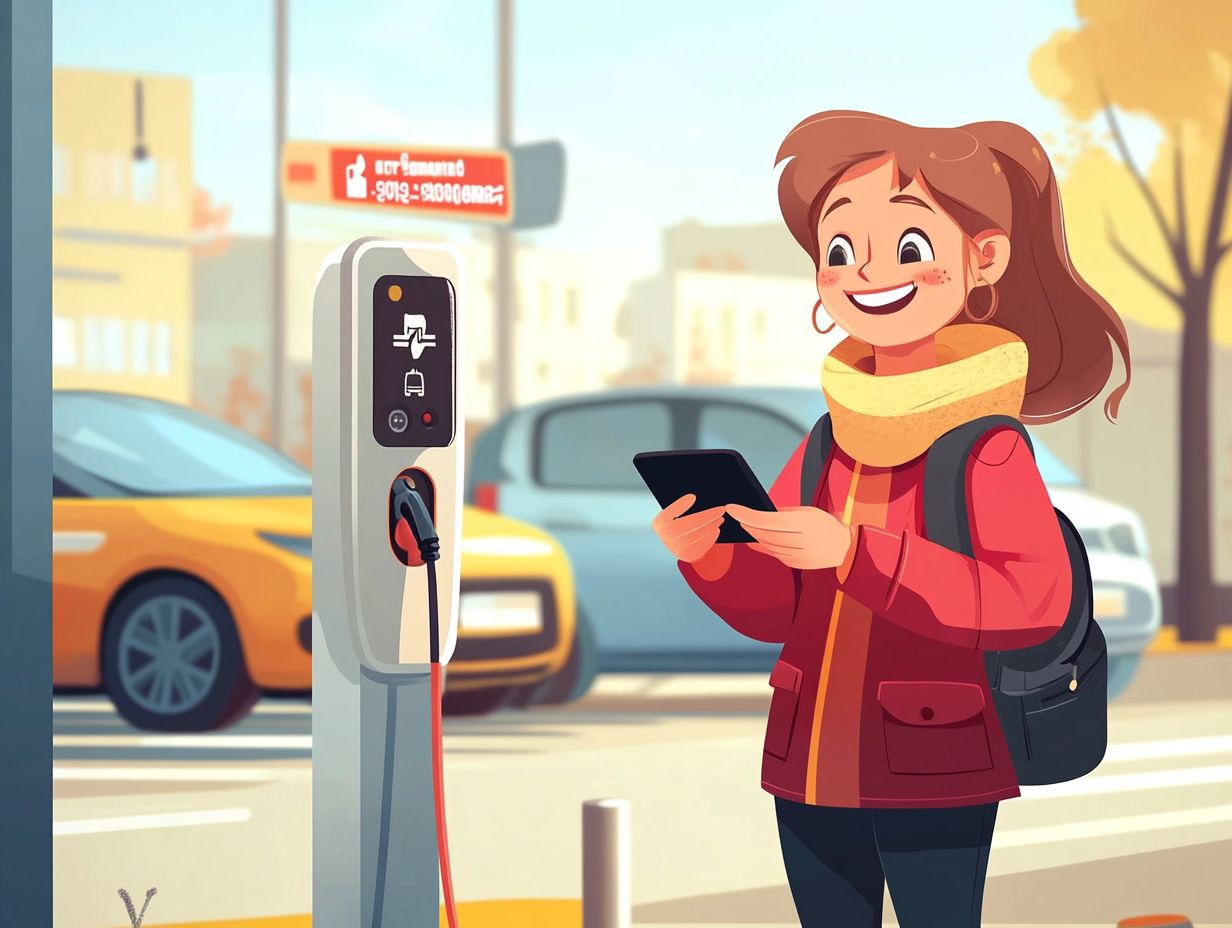
The availability of robust charging infrastructure and a diverse range of electric vehicles (EVs) are pivotal factors for you if you’re contemplating a transition from gasoline vehicles.
Efficient EV charging options, backed by electric utilities, can significantly enhance your ownership experience and ease any concerns about running out of battery before finding a charging station, also known as range anxiety.
By understanding the charging infrastructure available in your region and evaluating the range of various electric models, you can boost your confidence in making the switch to electric vehicles.
Integrating regional electricity networks with comprehensive charging stations can greatly influence the practicality of your daily use. As you explore your options, you ll likely weigh the advantages of fast-charging capabilities against the distance you can cover on a single charge.
The convenience of locating charging stations, along with the prospect of these stations being powered by renewable energy sources, cultivates a sense of sustainability that appeals to environmentally conscious buyers like yourself.
When you recognize that charging your vehicle is straightforward and that reliable information about regional infrastructure is readily accessible, you ll find yourself more inclined to embrace this innovative mode of transportation.
Tips for Maximizing Cost Savings with EVs
To maximize cost savings with electric vehicles (EVs), adopt a range of efficient driving techniques and make the most of available resources, such as public charging stations.
By optimizing your driving behavior, you can significantly enhance your vehicle’s efficiency. This results in lower energy consumption and reduced charging expenses.
Using both public and home charging options boosts your savings, making your shift to electric driving more economical.
Efficient Driving Techniques
Adopting efficient driving techniques is crucial for you as an EV owner, especially if you want to maximize your energy savings and enhance your driving efficiency.
Simple practices like smooth acceleration, regenerative braking (the process of using energy from braking to recharge the battery), and maintaining consistent speeds can dramatically improve your EV’s overall performance.
This translates to lower charging costs and increased savings on maintenance. By weaving these strategies into your daily driving habits, you can enjoy longer ranges and minimize wear on your vehicle’s components.
For instance, planning your trips to avoid sudden stops and starts not only conserves energy but also bolsters your battery’s health over time.
Using eco-driving modes available in many EVs can further optimize your power usage, giving you improved control without compromising comfort.
Don’t forget: regular maintenance checks and monitoring your tire pressure are essential. These practices ensure your vehicle operates at peak efficiency and deliver significant cost-effective benefits in the long run.
Using Public Charging Stations
Using public charging stations effectively can significantly enhance your cost savings as an EV owner. By identifying and leveraging charging infrastructure provided by electric utilities, you can strategically plan your charging sessions to minimize expenses.
Take advantage of any free or low-cost charging options available in your area. These stations are often conveniently located in places like shopping centers, parks, and workplaces, allowing you to charge your vehicle while you run errands or work.
This saves you time and transforms what could be a mundane wait into a productive moment.
Many local governments and businesses are investing in expanding access to charging stations, contributing to a robust network that supports sustainable travel.
By embracing these advancements, you can seamlessly integrate electric vehicle usage into your lifestyle, ultimately leading to reduced costs and a more environmentally friendly commuting experience.
Frequently Asked Questions
How can electric vehicles save me money on fuel costs?
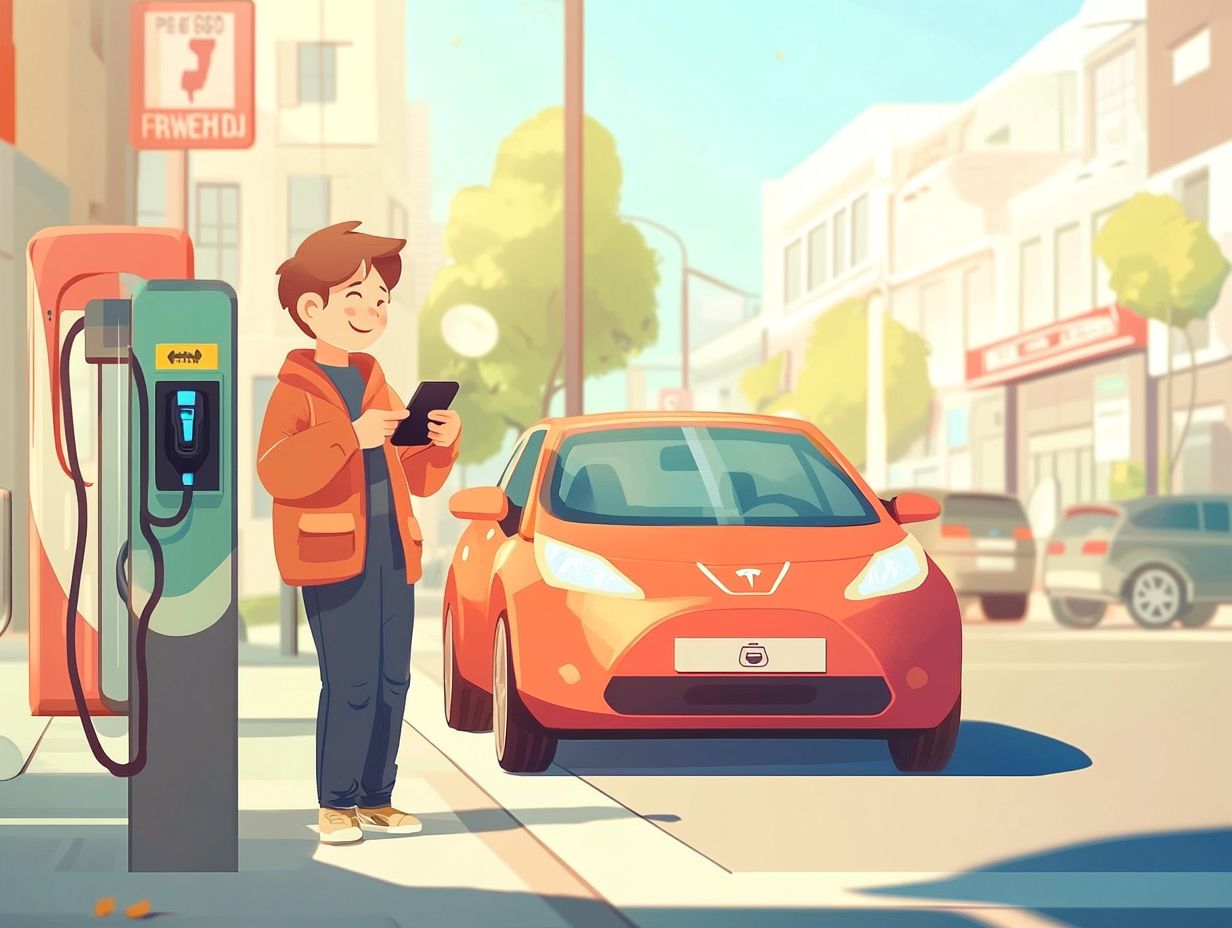
Electric vehicles use electricity instead of gasoline, which can save you money on fuel costs in the long run. On average, it costs about half as much to charge an EV compared to filling up a gas tank.
Are there any tax incentives for purchasing an electric vehicle?
Yes, there are federal tax credits for purchasing certain EVs. The amount of the credit varies depending on the make and model, ranging from $2,500 to $7,500.
How does owning an electric vehicle impact my maintenance costs?
Electric vehicles have fewer moving parts than traditional gasoline vehicles, leading to less wear and tear. This results in lower maintenance costs, such as fewer oil changes and brake replacements.
Can I save money on car insurance with an electric vehicle?
Some insurance companies offer discounts for EV owners, as they are seen as more environmentally friendly and have lower maintenance costs. It’s recommended to shop around and compare insurance rates to find the best deal.
What about the cost of electricity for charging an electric vehicle?
While the cost of electricity varies depending on location and provider, it is generally much cheaper than gasoline. Many EV owners also have the option to charge their vehicles at home, potentially saving even more money on charging costs.
Can Electric Vehicles Save Me Money on Taxes and Tolls?
Some states offer tax incentives for purchasing and driving electric vehicles, such as no sales tax. You might also enjoy lower toll fees or no tolls at all in certain cities and states.
These benefits can make driving an electric vehicle an even smarter financial choice. Start saving money today!


